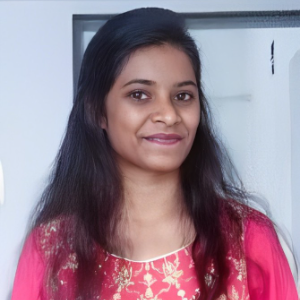Title : Dynamics of maternal dengue virus antibodies in Indian infants
Abstract:
Dengue is a mosquito-borne viral disease endemic in many countries particularly in the tropical and sub-tropical regions of the world. It is caused by one of the four serotypes of dengue virus (DENV). As the four serotypes are co-circulating, multiple encounters with heterologous dengue infection are highly prevalent. The enhanced risk of disease severity associated with secondary infection is mediated by one of the mechanisms known as Antibody-Dependent Enhancement (ADE) in dengue. The pathogenesis of dengue infection is determined by the interplay of neutralizing and infection-enhancing antibodies, particularly relevant in infants and young children. Infants born to dengue-immune mothers acquire maternal antibodies to dengue. Maternally acquired DENV-specific antibodies in infants, though initially protective, decline during the first year of life making them susceptible to primary dengue infections. Because of the introduction of the dengue vaccine in the near future in endemic countries like India, there is an urgent need to generate data on the kinetics of maternal antibodies that may offer a better understanding of the optimal age for dengue vaccination. In this study, we aimed to initially optimize plaque reduction neutralization test and antibody enhancement assay in a 96-well plate for the detection of neutralizing and infection-enhancing antibodies respectively for each of the four dengue virus serotypes. Next, we determined DENV-specific neutralizing and enhancing antibodies in Indian infants at birth, 3, 6 and 9 months of age. All anti-DENV IgG-positive samples showed the presence of neutralizing antibodies against 3 or 4 serotypes at birth. Neutralizing antibody levels decline with the increasing age of infants. Similarly, all anti-DENV IgG-positive samples showed enhancement of infection at a particular dilution against 3 or 4 serotypes at birth. With the increasing age of infants, fold enhancement of infection was highest in 6-month-old infants. In summary, our data suggests that DENV infection–enhancing activity coincided with the decline of neutralizing antibodies. Sub-neutralizing levels of maternally acquired DENV-specific antibodies showed DENV infection–enhancing activity highest at 6 months of age in infants. These maternal antibodies might interfere with the response to dengue vaccines. Therefore, such studies may provide insights into the appropriate age for dengue vaccination in infants born to dengue-immune mothers in endemic countries like India.



